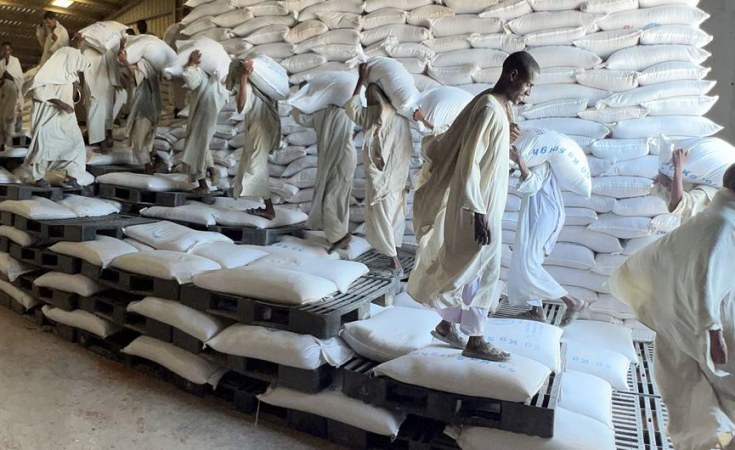Khartoum North — After fierce battles on Wednesday, in particular in the northern part of the Sudanese capital, large parts of Khartoum witnessed relative calm yesterday morning. NetBlocks reported that only four per cent of the internet capacity is working. Many people are running out of cash.
"The situation in Khartoum North today is very bad," a Sudanese tweeted on Wednesday. "More homes, properties, and shops have been damaged, power lines have been cut off, more people have been injured, and more families have decided to leave."
A woman told Radio Dabanga from Sharg En Nil (East Nile) in Khartoum North that a number of people fled their homes on Wednesday, after rumours of an imminent attack by ground forces from western and eastern directions.
Large numbers of Rapid Support Forces (RSF) were present in the neighbourhood, she said, while a reconnaissance aircraft was hovering over the area.
Other sources reported from East Nile on Wednesday that "overnight and today" they heard "the worst sounds of heavy artillery experienced since April 15".
The neighbourhood committees of the western part of Khartoum North warned residents of Bahri, El Doroshab, El Halfaya, El Salama, El Kadoro, and El Ezergab to take caution and stay at home.
The Ministry of Foreign Affairs accused the RSF of attacking the office of the Consulate of the Republic of Seychelles in Khartoum North.
Yesterday, the Sudan Armed Forces (SAF) called on the residents of Khartoum not to use motorcycles until after "completion of the operations", saying that RSF militiamen resort to this means of transport while wearing civilian clothes.
In search for water
Listener Bashir El Sadig said that Bahri witnessed a cautious calm on Thursday, after heavy shelling that lasted for hours, affecting Kober, Kafouri and other neighbourhoods.
"People are still afraid to leave their homes, but they have to, because of the continuing water outages," he reported. "You see people in the street with jerrycans, buckets, and other containers to fetch water from any place available".
He further lamented "the complete lack of medicines, especially for those with chronic diseases", and said that one of his neighbours had an asthma attack and "could only be rescued with difficulty".
No internet, no cash
According to NetBlocks, the Sudanese are suffering again from a breakdown in the Internet. "It is operating at four per cent of its normal state," the London-based organisation, tweeted yesterday.
The Bank of Khartoum officially announced that the Bankak (Your Bank) online app service returned "as normal" after a period of interruptions that lasted for five days.
Locals told Radio Dabanga however that the online application could not be used because of the weak Internet connection. ATMs of the banks that have not been attacked and plundered are out of service.
They said that they resorted to borrowing from shops and attempting to find work, such as transporting other in their vehicles and rickshaws in safe areas to obtain cash.
In parts of Khartoum, bodies continue to litter the streets and remain in their homes, as the ongoing violence prevents families from reaching their dead to bury them.


